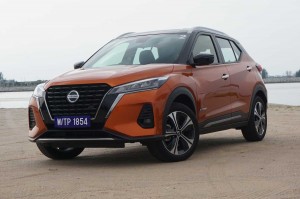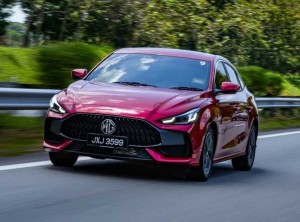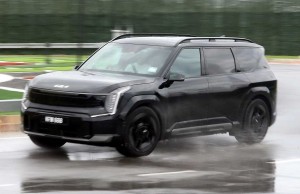US curbs on Chinese EV software tech could lead to retaliation
By BLOOMBERG | 23 September 2024
DETROIT: A US plan that would further limit Chinese electric cars via software and hardware curbs may have ramifications beyond the auto industry and could result in retaliation against US businesses in China, some analysts say.
US officials are set to unveil a proposal to ban the use and testing of Chinese and Russian technology and equipment in automated driving and vehicle communications systems, people familiar with the matter told Bloomberg News.
The pending restrictions stem from an investigation into cybersecurity risks posed by Chinese vehicle software that President Joe Biden launched in March.
Bill Russo, founder and chief executive officer of Shanghai-based investment advisory firm Automobility, questioned the US strategy given the proliferation of Chinese software in other consumer products.
"If it’s OK in something other than a car, it’s OK if it’s in a TV set or a smart device, what is the end game here?” he said. "If the goal is to de-risk China software, where do you draw the line?”
He added that an outright ban would only ratchet up existing political tensions between the two superpowers and would be met with reciprocity that will impact US business in China.
In May, the US quadrupled tariffs on Chinese EVs to a punitive 102.5%. Despite that, politicians including former President Donald Trump and industry figures in the US have expressed increasing concern that Chinese car companies will set up in Mexico to avoid the tariffs.
Tu Le, founder of US-based advisory firm Sino Auto Insights, said Washington’s plan will close a major loophole that Chinese EV makers have eyed as a way to bypass import tariffs into one of the world’s biggest auto markets, without having to unpick a free trade accord between the US, Mexico and Canada, also known as the North American Free Trade Agreement or USMCA.
"This is the US closing the Mexico back door because if Chinese automakers had decided to build in Mexico, then they could enter via the USMCA and have free reign into the US,” he said. "The USMCA can stay intact while Chinese vehicles can’t enter the US.”
In response to US concerns, the trade ministers of the three USMCA members agreed in May to "jointly expand their collaboration on issues related to non-market policies and practices of other countries,” a statement directed at China, according to a July report from the US Trade Representative.
That report to Congress expressed concern about the actions of Chinese car manufacturers and government subsidies.
"As with other key industrial sectors, the People’s Republic of China is targeting the EV sector for dominance,” it said. "It uses non-market policies and practices to concentrate production of goods within its borders, which undermines supply chain resilience and robs our workers and market-oriented businesses of the ability to compete fairly.”
China’s auto industry is also facing heavy pushback in Europe for flooding the continent with cheap EVs, which Brussels says are heavily-subsidized and unfairly distorting the bloc’s auto industry.
Chinese EVs have reshaped how today’s cars, connected to internet or cloud services, engage with drivers and what features they offer.
These capabilities have given rise to growing US concerns about data and cybersecurity risks. But there are also purely commercial worries too, with Bloomberg Intelligence estimating connected vehicles will constitute a global market worth almost $750 billion by 2030.
Shares tied to Chinese companies that produce software and hardware for connected vehicles were mixed Monday in response to the proposed US rules targeting their technology.
Hong Kong-listed Zhixing Automotive Technology Co. fell as much as 3.1% while in Shenzhen, Longhorn Auto Co. rose as much as 2.1%.
Tags
Autos News
Reviews

Nissan Kicks e-Power: Kicking off a new efficiency

6.8
Mercedes-Benz GLB 200: Measured versatility

MG5: Slick and comfortable cruiser

8.2
Kia EV9: Prime cut

8.0
Triumph Tiger 1200 GT Pro: High adventure on two wheels

8.0
Honda Civic Type R (FL5): Ride on the wild side

Mitsubishi Xpander facelift: Expanding the reach

First drive of Geely Galaxy E5
Videos

Aveta VTM 250; Affordable & Road Legal Adventure Bike

Nissan to launch affordable Vehicle to Grid technology from ...

Aveta VTM 250 hits Malaysian roads
